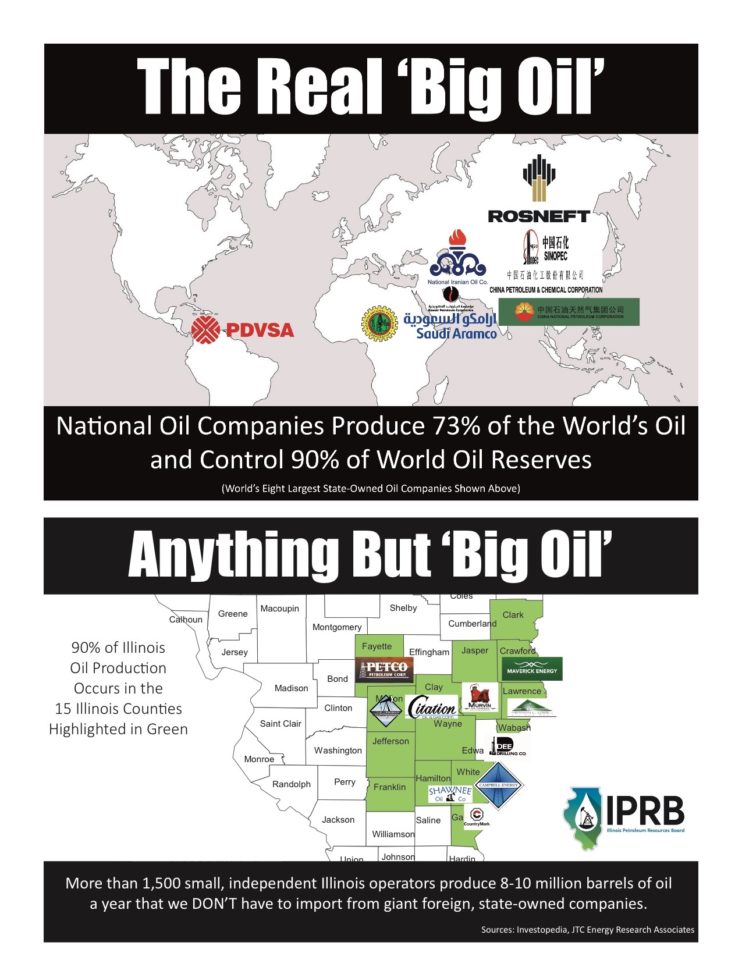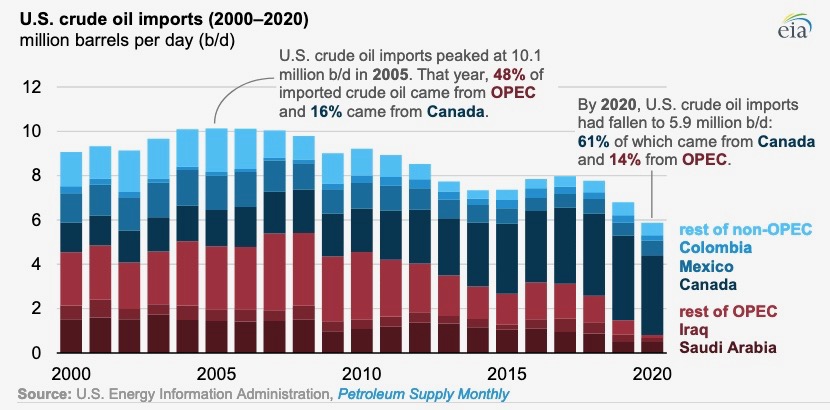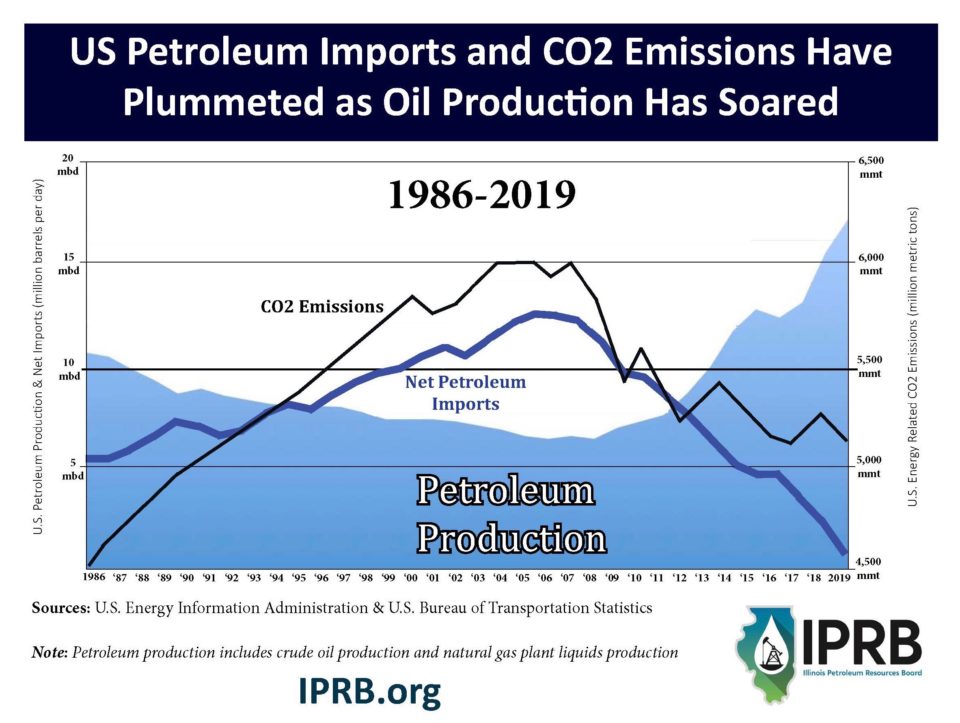IEA Report Recommendations Would Destroy US Energy Security if Implemented
State-owned national oil companies already produce nearly three-quarters of the world’s oil and control 90 percent of its proven reserves. The only thing keeping these true “Big Oil” giants from completely controlling the world’s hydrocarbon supply are the privately-owned, independent oil companies that dominate the Illinois Basin and the United States as a whole.
It is with that fact in mind that the recommendations of a recent International Energy Agency (IEA) report pose such a threat to the United States’ hard-won, decades-long struggle to achieve energy independence.
The IEA calls for no new investments in oil and gas-related projects in order to meet net-zero greenhouse gas emissions by 2050. It is a recommendation that will no doubt be completely ignored by the Saudi Aramcos, Rosnefts (Russia) and National Iranian Oil Corporations of the world, while emboldening “Keep It In the Ground” calls for divestment from independent oil and gas producers and publicly traded multi-national companies based here in the United States.
That is terrible news for the energy security of the United States, namely because even the IEA acknowledges the world is going to need a lot of oil for many decades to come. As Cyril Widdershoven writes for Oilprice.com,“A fully renewable, sustainable, and stable world before 2050 is not something that can be achieved without oil and gas for both petrochemicals and energy” and “[w]ithout independents, all power will fall into the hands of national producers.”
The IEA even acknowledges that if its recommendations are acted on, the OPEC cartel’s share of global oil supply will jump from 37 percent to 52 percent in 2050, an all-time high. This would leave the United States heavily reliant on hostile foreign sources for both its traditional and renewable energy needs (China enjoys a virtual monopoly on critical mineral supply chains needed for alternative energy infrastructure).
It’s often been said that doing the same thing over and over again and expecting different results is the definition of insanity. But it’s even crazier to voluntarily recreate a foreign energy-reliance scenario that has had dire consequences in the past and expect a positive outcome this time around.
It was just 16 years ago that nearly half of the record 10.1 million barrels a day of crude oil the U.S. imported came from OPEC cartel.
We were under the cartel’s thumb for decades, indirectly or directly resulting in numerous bloody foreign entanglements and infamous long lines at the pumps. With OPEC’s energy-driven geopolitical leverage over the United States as a prime motivator, eight different U.S. presidents strived for energy independence. The goal was finally achieved last year, when we became a net petroleum exporter for the first time on record and saw our crude oil imports from OPEC fall to their lowest levels since 1973. Remarkably, at the same time the United States achieved energy independence, it also managed to lead the world in carbon dioxide emissions (CO2) reductions.
Global CO2 reductions are at the core of the IEA’s recommendations. But the fact remains that the U.S. oil demand will remain strong for decades and the most realistic way to continue the historic decoupling trends of economic growth and emissions reductions is producing as much oil and natural gas here as possible.
Returning to the days of importing a large share of the oil we use from OPEC and other state-owned sources will not only weaken our geopolitical standing, but result in higher emissions, considering state-owned oil companies are subject to far more relaxed environmental standards than companies here in the U.S.
Soon after the IEA’s report was released, energy companies in Asia, Japan and the Philippines rejected the organization’s conclusion that stopping new oil and gas investment and ceding market share to OPEC is the ideal path to net-zero emissions. The United States should do the same. Not only are the IEA’s recommendations unrealistic, they would further embolden true “Big Oil” state-owned giants who would love nothing more than to have the United States once again under their collective thumbs.




Well said Seth. This information needs to be put out there because the news media is certainly not doing it.